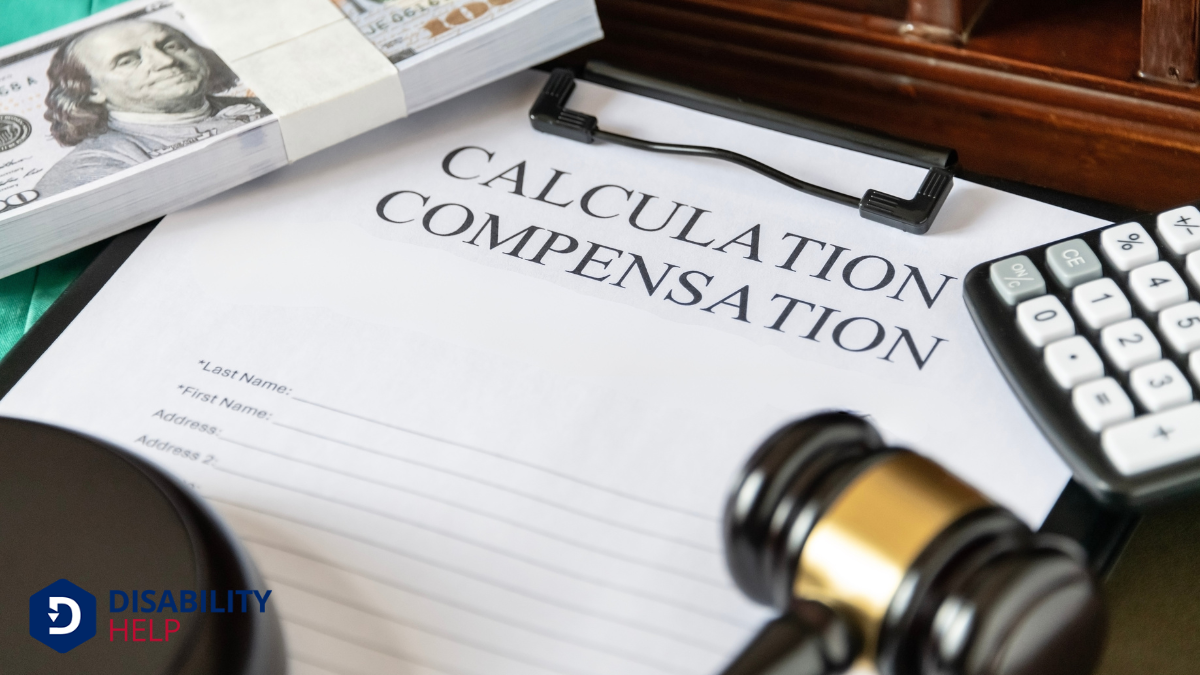When faced with a personal injury claim, we often grapple with the decision of whether to pursue a settlement or take the case to court. Both options have distinct advantages and drawbacks that can impact our financial and emotional well-being. Settlements may offer a quicker resolution, but courtroom battles can sometimes yield greater compensation. The path we choose depends on our unique circumstances and priorities. What factors should we consider to make the best decision?
Key Takeaways
- Settlements offer faster compensation and more predictable outcomes compared to the lengthy and uncertain nature of lawsuits.
- Legal fees are typically lower in settlements, allowing injured parties to retain more compensation than in litigation.
- Emotional and psychological stress is minimized in settlements, avoiding the public scrutiny and anxiety of a trial.
- Settlements may result in lower compensation amounts than potential court awards, but they provide certainty and closure.
- The decision to settle or litigate depends on case strength, time considerations, and willingness to negotiate.
Understanding the Basics of Personal Injury Claims
Personal injury claims can seem overwhelming, but understanding the basics helps simplify the process. When we pursue a personal injury claim, we seek compensation for injuries caused by someone else's negligenceA legal concept where a party fails to exercise reasonable care, resulting in harm to another person....
This process starts with gathering evidence like medical records, witness statements, and photos. We then file a claim with the at-fault party's insurance company, detailing our injuries and losses.
The insurer reviews our claim and may propose a settlement offer. It's vital to evaluate this offer carefully, ensuring it covers all our damages. If the offer falls short, we can negotiate for a fair amount.
Pros and Cons of Settling a Personal Injury Claim

While deciding whether to settle a personal injury claim, it's essential to weigh the pros and cons of settling versus pursuing a lawsuit.
Settling can be faster, allowing us to receive compensation more quickly. It also spares us the stress and unpredictability of a court case. We often save on legal fees since settlements typically require less preparation time.
However, settling might mean accepting a lower amount than we'd potentially win in court. Once we agree to a settlement, we can't pursue further compensation for the same injury. Additionally, the opposing party often benefits from not admitting liability in a settlement.
Ultimately, understanding these factors helps us make informed decisions about whether settling is the right choice for our situation.
Benefits and Risks of Taking a Personal Injury Case to Court
Considering the pros and cons of settling a personal injury claim leads us to explore the option of taking a case to court. When we pursue legal action, we might secure higher compensation if the verdict is in our favor. A public trial can also bring a sense of justice and closure.
However, this path carries significant risks. Court cases can be lengthy and unpredictable, often leading to increased stress and uncertainty. Legal fees might accumulate, eating into potential awards. Additionally, if we lose, we could end up with nothing, or worse, be responsible for the defendant's legal costs.
It's crucial to weigh these benefits and risks carefully before deciding if litigation is the right course for our situation.
Factors Influencing the Decision to Settle or Litigate
When deciding whether to settle or litigate a personal injury claim, several critical factors come into play.
First, we need to assess the strength of our case. Do we've compelling evidence, or are there uncertainties that might weaken our position in court?
Next, let's think about time. Litigation can be lengthy, and a quick resolution might be more appealing.
We should also weigh the emotional toll. Trials can be stressful and public, while settlements are often private.
Legal costs are another factor, as litigation can be expensive.
Finally, we must evaluate the willingness of both parties to negotiate. If the other side is open to a fair settlement, it might be a preferable route for us.
Evaluating the Potential Compensation in Settlement vs. Lawsuit

Evaluating the factors that influence our decision to settle or litigate leads us to another significant consideration: potential compensation. Settlements often provide a quicker resolution and more predictable compensation. We can negotiate a settlement that reflects our immediate needs, often avoiding the unpredictability of a trial.
However, lawsuits may result in higher compensation if a jury awards damages beyond what a settlement might offer.
We must weigh the risks and benefits. Trials can be lengthy and costly, with no guaranteed outcome. While settlements offer certainty, they mightn't fully cover long-term needs.
Our choice hinges on how much risk we’re willing to take for potentially greater compensation. Understanding these dynamics helps us make an informed decision that best meets our financial and personal needs.
The Role of Legal Representation in Settlements and Lawsuits
Having skilled legal representationThe way people with disabilities are depicted in media, culture, and politics, often influencing pub... can greatly influence the outcome of personal injury cases, whether we choose to pursue a settlement or a lawsuit.
Our attorney's expertise helps us navigate complex legal procedures and guarantees our rights are protected. They can negotiate effectively during settlement discussions, working to secure a fair compensation without the need for court intervention.
If a lawsuit becomes necessary, a knowledgeable lawyer advocates for us, presenting compelling evidence and arguments. They analyze every detail, from gathering witness testimonies to interpreting medical reports.
Their strategic insights help us make informed decisions, whether it's accepting a settlement offer or proceeding to trial. With their guidance, we’re better equipped to understand our options and optimize our chances of achieving a favorable resolution.
Time and Cost Considerations in Personal Injury Cases
When considering personal injury cases, we must weigh both the time and financial implications of each option.
Settlements typically resolve faster and incur lower costs, while lawsuits can stretch over months or years and often require substantial financial resources.
Let’s consider how these factors impact our decision-making process.
Legal Process Duration
Even though personal injury cases can provide necessary compensation, the duration of the legal process can be a significant concern. Steering through the legal system can feel like an intimidating, time-consuming task.
Let's break down the process:
- Filing and Initial Steps: This includes gathering evidence and filing the claim, which can take weeks or months.
- Discovery Phase: Both parties exchange required information, often extending the timeline by several months.
- Negotiations and Mediation: Attempts to settle before trial can either conclude quickly or add more time.
- Trial Preparation and Court Dates: If no settlement is reached, awaiting a court date could take additional months or even years.
Each stage demands time, potentially delaying compensation and increasing stress, making settlements an appealing alternative.
Financial Implications Considerations
Steering through the lengthy legal process in personal injury cases isn't just about patience; it also involves significant financial considerations.
As we navigate these waters, it’s essential to weigh the cost implications of a lawsuit against a settlement. Lawsuits can be expensive, with court fees, attorney costs, and expert witness charges adding up quickly. Additionally, the time required for a lawsuit might extend for years, during which we mightn't see any compensation, impacting our financial stability.
Settlements, on the other hand, often present a quicker resolution, allowing us to avoid prolonged financial strain. While they might offer less than a court verdict, they provide immediate funds, helping us manage medical bills and lost wages.
Understanding these financial aspects helps us make informed decisions.
Making the Best Decision for Your Personal Injury Case

Let's weigh the benefits of accepting a settlement against the potential drawbacks of pursuing a lawsuit.
We should consider how a settlement might offer quicker resolution and certainty, whereas a lawsuit could involve lengthy processes and uncertain outcomes.
Evaluating Settlement Benefits
Why might a settlement be the smarter choice for your personal injury case?
Let's explore the benefits that can make settling appealing.
First, settlements often provide quicker resolutions, allowing us to move forward without lengthy court battles.
Second, they usually reduce legal costs, putting more money in our pockets.
Third, settlements are generally less stressful, sparing us the emotional toll of a courtroom experience.
Finally, they offer certainty, as we agree on a specific outcome rather than gambling on a jury's decision.
Here's a closer look:
- Speed - Settlements can be resolved faster than lawsuits.
- Cost - Lower legal fees mean more compensation for us.
- Stress - Avoid the anxiety of a public trial.
- Certainty - Know the outcome in advance.
Assessing Lawsuit Drawbacks
Although pursuing a lawsuit might seem appealing, it's important to weigh the potential drawbacks carefully. Lawsuits can be time-consuming and emotionally draining.
We should consider that court cases often take months or even years to resolve, during which we might experience stress and uncertainty.
Additionally, the costs associated with legal proceedings can add up quickly. Attorney fees, court costs, and other related expenses might outweigh the potential financial gain from a favorable verdict.
There’s also no guarantee of winning our case, and we might end up with nothing.
Lastly, we should think about the public nature of lawsuits. Unlike settlements, which are private, court cases are public records that anyone can access.
We must decide if this exposure aligns with our personal comfort and goals.
Conclusion
In weighing a personal injury settlement against a lawsuit, we must consider time, stress, and potential compensation. Settlements provide quicker resolutions and less emotional strain but might not fully meet long-term needs. Lawsuits, while potentially offering higher compensation, involve longer, uncertain processes. Our decision should reflect our risk tolerance and unique circumstances, balancing immediate relief against future security. With the guidance of experienced legal representation, we can make an informed choice that aligns with our best interests.






